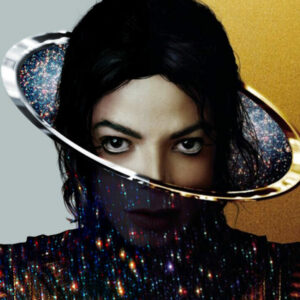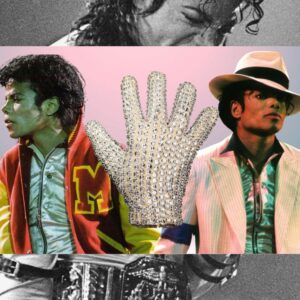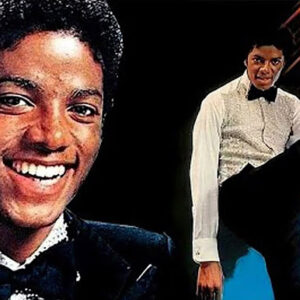Introduction
Michael Jackson, the undisputed King of Pop, was far more than a revolutionary performer who changed the landscape of music forever. He was also a cultural icon who used his global platform to challenge societal norms and advocate for social justice. With his unparalleled reach, Jackson was able to infuse his music with powerful messages, often confronting issues of race, inequality, and global unity.
Throughout his career, Jackson leveraged his massive influence not just to entertain but to make profound statements on the human condition. By blending his art with activism, he shaped political conversations worldwide. In this article, we delve into how Michael Jackson’s music became a force for social change, fostering dialogue on some of the most pressing issues of his time.
Social and Political Messages in Michael Jackson’s Music
Michael Jackson’s music was not merely a collection of chart-topping hits; it was a reflection of his deep concerns about humanity and the world around him. Jackson’s songs often spoke to universal themes of equality, justice, and healing, capturing the essence of social struggles and aspirations. His lyrics carried a message that was accessible yet poignant, addressing both individual and collective responsibility.
“Black or White” (1991)
One of the most iconic examples of Jackson’s commitment to social issues is “Black or White.” Released in 1991, this track was a bold statement on racial equality and unity. At a time when racial tensions were still a critical issue in many parts of the world, Jackson’s message was both timely and universal.
The song’s lyrics emphasize the insignificance of skin color, declaring, “It don’t matter if you’re black or white.” The accompanying music video further amplified this message with its groundbreaking morphing technology that transformed faces of different ethnicities. The visual metamorphosis symbolized the idea that beneath the surface, we are all the same. Jackson’s message resonated globally, reminding audiences that race should never divide us.
In the early 1990s, race relations were a volatile topic, particularly in the United States, where incidents of police brutality and racial discrimination sparked widespread outrage. Jackson’s “Black or White” was not just a pop anthem; it was a cultural statement, contributing to the conversation about race in America and beyond. By packaging this message in a pop format, Jackson ensured that it reached a broad audience, crossing boundaries of age, race, and nationality.
“Man in the Mirror” (1988)
Released three years earlier, “Man in the Mirror” became one of Jackson’s most enduring anthems for change. Unlike many other socially conscious songs, “Man in the Mirror” was deeply introspective, calling for personal accountability in the face of global injustice. The song’s core message is simple yet profound: true change begins within. Jackson’s lyrics challenge listeners to examine themselves and take responsibility for making the world a better place.
The song’s music video interspersed footage of historical figures such as Martin Luther King Jr. and Nelson Mandela, along with images of poverty, war, and oppression. This juxtaposition served as a visual reminder of the work that still needed to be done in the fight for justice and equality. By placing the responsibility on the individual, Jackson empowered his audience to believe that they, too, could contribute to social change.
“Man in the Mirror” became an anthem for personal and societal transformation, resonating with audiences who were inspired by its message of self-reflection and action. It became one of Jackson’s signature songs, regularly performed during his concerts and used as a rallying cry for various charitable causes.
“Heal the World” (1991)
With “Heal the World,” Jackson expanded his focus to global peace and humanitarianism. Released on the same album as “Black or White,” this track was a heartfelt plea for unity and compassion. The song’s lyrics call for people to care for the world and its children, emphasizing the need to make the world a better place for future generations.
Jackson’s commitment to this message extended beyond the music itself. He founded the Heal the World Foundation, a charitable organization dedicated to improving the lives of children around the world. The foundation’s mission was to provide aid to those suffering from poverty, hunger, and disease, particularly children in need. Through his philanthropic efforts, Jackson demonstrated that his activism was not confined to the stage or studio—he was actively working to create real-world change.
“Heal the World” became a global anthem for peace and hope, resonating with listeners across cultures. It highlighted Jackson’s belief in the power of music to bring people together and foster a sense of shared responsibility for the world’s problems.
“They Don’t Care About Us” (1996)
If “Black or White” and “Man in the Mirror” were calls for unity and self-reflection, “They Don’t Care About Us” was a searing critique of systemic injustice. Released in 1996, this track is one of Jackson’s most politically charged songs, addressing issues of discrimination, inequality, and institutional neglect. The lyrics are direct and confrontational, criticizing the treatment of marginalized communities and calling out those in power who fail to address these issues.
The music video, directed by Spike Lee, was equally powerful. Filmed in Brazil, it featured scenes of Jackson surrounded by local residents in a favela, as well as footage of police brutality and civil unrest. The imagery underscored the song’s message of resistance against oppression and highlighted the struggles of those living in poverty and facing injustice.
Despite facing controversy and backlash, particularly over the song’s provocative lyrics, “They Don’t Care About Us” remains a powerful commentary on the social issues that persist in our world today. Jackson’s willingness to address these difficult topics in his music demonstrated his commitment to using his platform to advocate for change.
Influence on Public Discourse and Awareness
Michael Jackson’s music played a pivotal role in shaping public discourse on social and political issues. His unique ability to blend entertainment with activism allowed him to bring these issues to a broader audience, many of whom might not have otherwise engaged with such topics. Jackson’s songs were more than just popular hits; they were vehicles for raising awareness and inspiring action.
Raising Awareness
One of Jackson’s greatest achievements as an artist was his ability to use his music to raise awareness about issues that were often overlooked or ignored. Whether it was the fight against racial discrimination, the call for personal responsibility, or the need for global unity, Jackson’s songs brought these topics to the forefront of public consciousness.
By incorporating social and political themes into his music, Jackson reached millions of people who might not have been exposed to these ideas in other contexts. His music videos, concerts, and public appearances all reinforced the messages he sought to convey, making him a powerful advocate for social change.
Inspiring Change
Jackson’s influence extended beyond simply raising awareness—he also inspired people to take action. His philanthropic efforts, from founding the Heal the World Foundation to donating millions to charity, demonstrated his commitment to making a tangible difference in the world. Jackson’s example encouraged others to follow in his footsteps, whether by supporting charitable causes or by using their own platforms to advocate for change.
Jackson’s impact was particularly evident in his ability to inspire other artists. Many musicians who followed in his footsteps have cited Jackson as an influence, not just for his musical talent but for his dedication to social and political causes. From Beyoncé to Kendrick Lamar, countless artists have drawn inspiration from Jackson’s ability to use music as a tool for activism.
Impact on Future Artists
Michael Jackson’s approach to blending social messages with popular music set a precedent for future generations of artists. His ability to use his platform for activism, while still maintaining his status as one of the most successful entertainers of all time, has inspired countless musicians to address social and political issues in their own work.
Artists such as Lady Gaga, Bono, and John Legend have all followed in Jackson’s footsteps, using their music to advocate for causes they believe in. Jackson’s legacy as an artist who was unafraid to speak out on important issues has paved the way for future generations to continue this tradition of using music as a force for good.
Conclusion
Michael Jackson’s impact on social and political discourse cannot be overstated. Through his music, he addressed critical issues, inspired change, and influenced public awareness. Jackson’s legacy as an artist extends far beyond his musical achievements—he was a visionary who used his platform to advocate for a more just and compassionate world.
By blending entertainment with activism, Jackson set a new standard for what it means to be a global icon. His music remains a testament to the power of art to shape social and political conversations, and his influence continues to be felt by artists and activists alike. In a world that still grapples with many of the issues Jackson addressed in his songs, his work serves as a reminder of the transformative potential of music.





